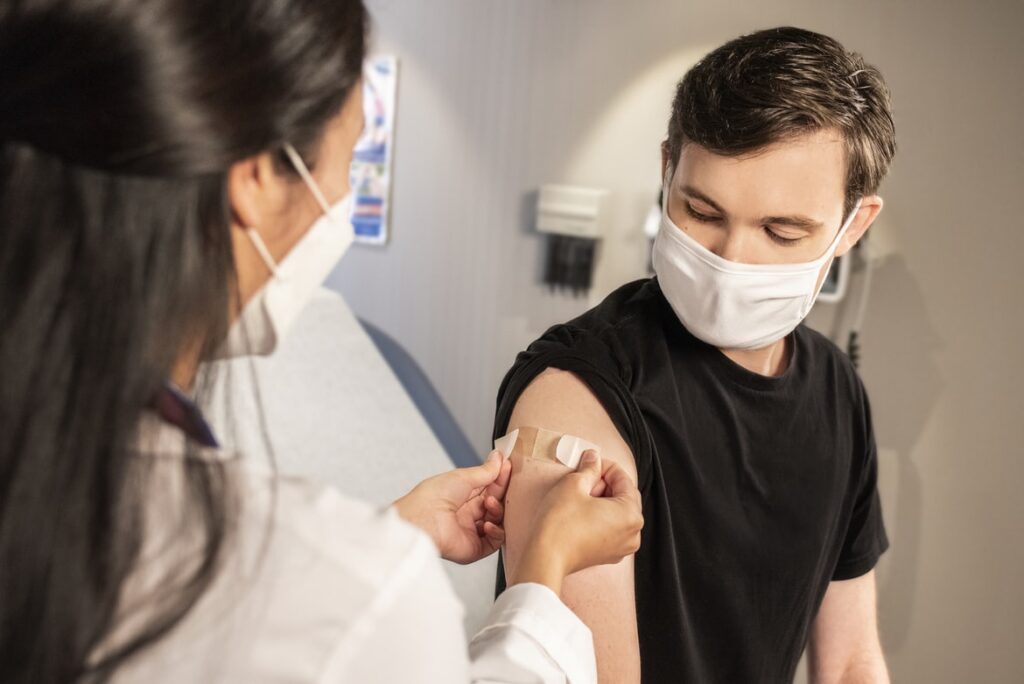Vaccination: Facts Over Myths

The current global discussion on Covid-19 vaccine has been filled with myths and facts. I decided to share some facts with you on vaccination/immunization.
Vaccines are among the greatest advances in global health and development. For over two centuries, vaccines have safely reduced the scourge of diseases like polio, measles and smallpox, helping children grow up healthy and happy. They save more than five lives every minute – preventing up to three million deaths a year, even before the arrival of COVID-19. The goal of public health is to prevent disease. It’s much easier and more cost-effective to prevent a disease than to treat it. That’s exactly what immunizations aim to do.
What is Immunization?
Vaccine or Immunization is a small amount of a weakened or killed virus or bacteria or lab produced protein that initiate the virus to prevent infection by the same virus or bacteria. Immunization is the injection of a weakened form of (or a fragment of) a disease. This triggers the body’s immune response, causing it to either produce antibodies to that particular ailment or induce other processes that enhance immunity. So should in case the immunized person is exposed to the actual disease causing organism, the immune system will be prepared to fight the infection by either preventing the onset or reduce the severity of the sickness.
Why is Immunization needed?
Immunizations provides a form of protection against serious diseases and also prevent the spread of those diseases to others. Over the years immunizations have reduced epidemics of once common infectious diseases such as measles, mumps, and whooping cough. And because of immunizations we’ve seen the near eradication of others, such as polio and smallpox.
Some vaccines need to be given only once; others require updates or “boosters” to maintain successful immunization and continued protection against disease for example, Tetanus Toxoid (TT), Hepatitis vaccine etc.
Who needs to be vaccinated?
Majority of the population are knowledgeable only about children within the ages of 0 -18months vaccination and are not aware Adults, also need these vaccination as much as children do for a safer, healthier community. Thanks to immunization efforts worldwide, children are able to walk, play, dance and learn and Adults being able to cope with lifestyle and work exposing disease conditions. Today, vaccines are estimated to be one of the most cost-effective means of advancing global welfare.
Despite these longstanding benefits, low immunization levels persist. Some 20 million children miss out on life-saving vaccines annually. The most poor and marginalized children – often most in need of vaccines – continue to be the least likely to get them.
How to Engage the public in the vaccination system
- Health education of the community about the vaccines answering why, what and how, and also relating the benefits and consequences to the families.
- Maintaining a trend with the vaccination to ensure participation of community members in the vaccination program.
- Ensuring availability of potent vaccines by the government for the community members by maintaining the cold chain system.
- Ensuring that every child has access and is vaccinated as appropriate.
Immunizations for Children
Proof of immunization is often a prerequisite for enrollment in school or day care, it’s important to keep children up to date on their vaccines; the benefit of doing so is to protect children from diseases that could cause them serious health problems. The recommended immunizations for children 0-6 years of age include:
- Hepatitis B
- Rotavirus
- Diphtheria, tetanus, pertussis
- Haemophilus influenzae type B
- Pneumococcal
- Poliovirus
- Influenza
- Measles, mumps, rubella
- Varicella (chickenpox)
- Hepatitis A
- Meningococcal (for certain high-risk groups)
How Effective Are Immunizations?
Vaccines are very effective at preventing some disease. Most of the recommended childhood immunizations are 90%-100% effective, according to the CDC.However, for reasons that are not completely understood, sometimes a child will not become fully immunized against a disease after receiving a vaccine. This is all the more reason to get children vaccinated. Children in whom the vaccine is 100% effective protect those few who have not been completely immunized (lessening everyone’s chance of exposure to the disease. Even in cases where a vaccine has not given your child 100% immunity, the symptoms (if your child is exposed to an infectious disease) will still usually be milder than if they had not been immunized at all.
Visit your local clinic or Primary health care center to get yourself and your children vaccinated so we can build a healthier, stronger community.
Coming up next: Immunization schedule in Nigeria
For questions, comment or observation kindly contact me on +234 (810) 860 2823 or Oluwanifemi_oloniyo@yahoo.com
To your good health!
Nurse Oloniyo Oluwanifemi
Reference
Immunizations and Vaccines, Steve Goodman, WebMd, 2020
Immunization, UNICEF, http://www.unicef.org, 2021